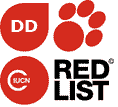Anolis boulengerianus THOMINOT, 1887
We have no photos, try to find some by Google images search: ![]()
| Higher Taxa | Anolidae, Iguania, Sauria, Squamata (lizards) |
| Subspecies | |
| Common Names | E: Tehuantepec Anole S: Abaniquillo Tehuano |
| Synonym | Anolis boulengerianus THOMINOT 1887 Anolis nebulosus — BARBOUR 1934 (in part) Anolis nebulosus — SMITH & TAYLOR 1950 (in part). Anolis isthmicus FITCH 1978: 2 Norops isthmicus — LINER 1994 Norops isthmicus — NICHOLSON 2002 Anolis isthmicus — LINER 2007 Anolis isthmicus — LINER & CASAS-ANDREU 2008: 42 Norops isthmicus — NICHOLSON et al. 2012 Anolis boulengerianus — KÖHLER et al. 2014: 103 Norops boulengerianus — NICHOLSON et al. 2018 Anolis boulengerianus — HEIMES 2022 |
| Distribution | Mexico (SE Oaxaca) Type locality: “Téhuantépec (Mexique).” Type locality: 19.5 km WNW Tehuantepec, Oaxaca, Mexico [isthmicus] |
| Reproduction | oviparous |
| Types | Syntypes: MNHN-RA 6554, MNHN-RA 1994.1670 (formerly MNHN-RA 6554A) and MNHN-RA 1994.1671 (formerly MNHN-RA 6554B) (boulengerianus) Holotype: KU 176034 (University of Kansas Natural History Museum), adult male, collected 11 February 1977 by H. S. Fitch [isthmicus] |
| Diagnosis | Diagnosis: A small to moderate-sized species (SVL in largest male 56.0 mm, largest female 51.0 mm) of the genus Anolis (sensu Poe 2004) that differs from all Mexican and Central American anoles except A. carlliebi, A. immaculogularis, A. quercorum, A. subocularis, and A. sacamecatensis by having a combination of (1) strongly keeled ventral scales; (2) usually a patch of three greatly enlarged supraocular scales; (3) 13–20 rows of slightly to moderately enlarged dorsal scales that are smaller than ventral scales; (4) moderately long hind legs, longest toe of adpressed hind leg usually reaching to level of posterior border of eye or beyond, ratio shank length/SVL 0.24–0.32; and (5) a large orange yellow dewlap in males and a small orange dewlap in females. Anolis boulengerianus differs from A. carlliebi, A. quercorum, and A. sacamecatensis by having longer legs with the longest toe of adpressed hind leg usually reaching to level of posterior border of eye or beyond, ratio shank length/ SVL 0.24–0.31 (vs. to ear opening or to a point between ear opening and eye, ratio shank length/SVL 0.20–0.26). Anolis boulengerianus differs from A. subocularis in male dewlap coloration in life (orange yellow with paler areas around gorgetals in A. boulengerianus vs. pinkish red with paler areas around gorgetals in A. subocularis) and in hemipenial morphology (hemipenis slightly bilobate with two apical fields void of ornamentation, one on each lobe and with a finger-like asulcate processus and an indistinct asulcate ridge in A. boulengerianus vs. hemipenis unilobate with a single apical field void of ornamentation and without an asulcate processus or asulcate ridge in A. subocularis). Also, in A. boulengerianus, the subocular scales are usually broadly in contact with the supralabials (vs. subocular scales separated from supralabials by one scale row or these scales in contact in A. subocularis). Anolis boulengerianus differs from A. immaculogularis in male dewlap coloration in life (orange yellow with paler areas around gorgetals in A. boulengerianus vs. pinkish red without paler areas around gorgetals in A. immaculogularis) (KÖHLER et al. 2014). |
| Comment | Species group: Norops auratus Species Group (fide Nicholson et al. 2012) Synonymy: mostly after KÖHLER et al. 2014 and SMITH & TAYLOR 1950. Barbour (1934) and SMITH & TAYLOR 1950 synonymized Anolis boulengerianus with A. nebulosus. Anolis boulengerianus THOMINOT 1887 was removed from the synonymy of A. nebulosus by NIETO-MINTES DE OCA et al. 2014. |
| Etymology | Named after George Albert Boulenger (1858-1937), herpetologist at the British Museum of Natural History, London. |
| References |
|
| External links |


